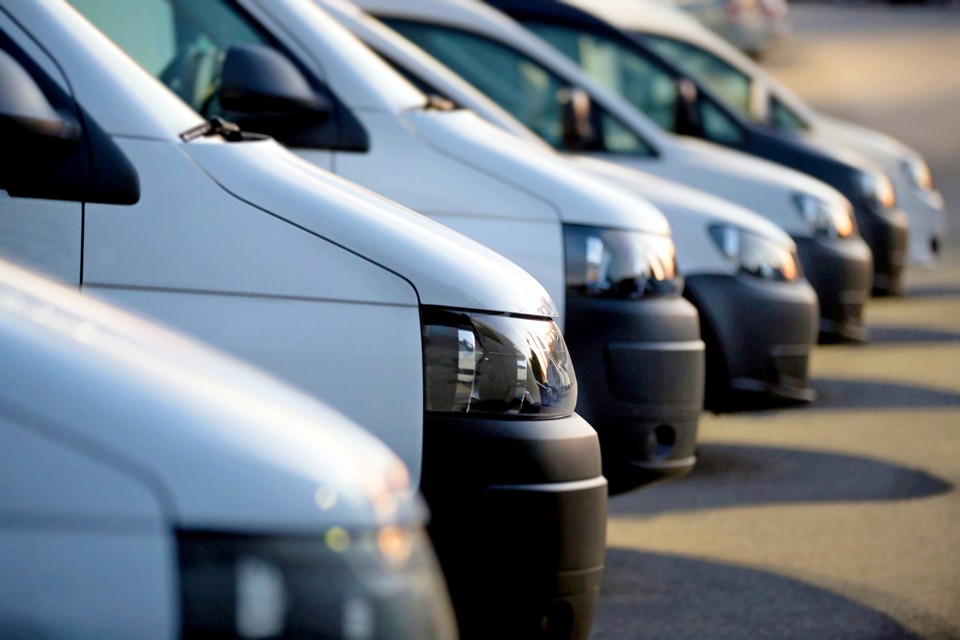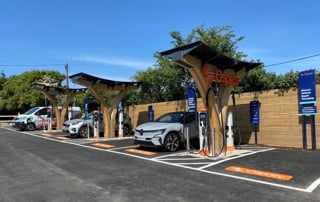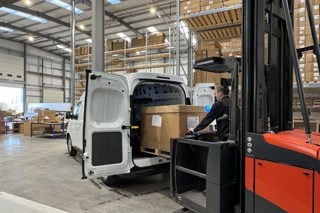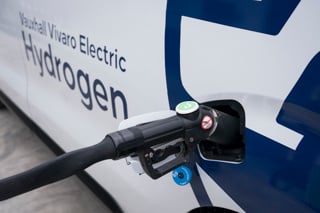Further changes to the rules regulating the operation of heavier electric vans are being considered, with the Department for Transport (DfT) saying it continues to engage with the fleet sector.
A series of measures were announced around zero-emission vans, which weigh more than 3.5 tonnes up to a maximum weight of 4.25 tonnes, earlier this week, following a Government consultation.
The DfT removed the additional five-hour training requirement for drivers and announced changes to towing allowances for electric vans weighing up to 4.25 tonnes.
Zero-emission vans, it said, would be subjected to the same towing rules as equivalent internal combustion engine (ICE) vehicles.
It will legislate to allow zero-emission vehicles (ZEVs) operating under the licence flexibility to tow a vehicle and trailer combination up to 7,000kg maximum authorised mass (MAM).
This will be under the same conditions as equivalent ICE vehicles and will reflect recent changes to B+E licence entitlements.
Furthermore, it says it will legislate to only allow ZEVs to access the licence flexibility and it will expand the flexibility to cover all vehicle types, beyond goods vans.
The Government made the changes saying it wants running a zero-emission van to be no more difficult than operating a petrol or diesel equivalent.
However, the Association of Fleet Professionals (AFP) has highlighted how, despite being told heavier electric vans can be treated the same as their ICE equivalents, there are still a raft of different rules regulating their use.
An electric van weighing more than 3.5 tonnes, for example, is still classed as an HGV and as such requires an MOT test after 12 months.
It is also speed restricted, while tachograph regulations come into effect if the vehicle travels more than 100kms from base.
There are further layers of complication. For fleets operating in Northern Ireland, the 4.25 tonne exemptions stop at the border for those travelling from the north into the south and the vehicle needs to be covered by an international O licence.
The AFP, which previously reported fleets were cancelling orders for heavier electric vans, because of confusion over rules regulating their operation, says it is speaking to van manufacturers and the Office for Zero Emission Vehicles (OZEV) about the need for them to be treated exactly the same as petrol or diesel vans weighing up to 3.5 tonnes.
AFP chair, Paul Hollick, confirmed the fleet trade group was also due to speak to the Driver and Vehicle Standards Agency (DVSA) about how these remaining issues can be addressed.
“These are just vans and they just need to be categorised as vans to stop all this hassle,” he told the latest Fleet News at 10 webinar.
“We have got a lot of members at the moment that aren't deploying these vehicles because of these issues.”
Appearing alongside Hollick, Lorna McAtear, fleet manager at National Grid, said it was proving difficult to unpick the legislation.
“Everyone’s trying to resolve it,” she explained. “It’s just how we can we do that without having to make lots and lots of changes to current legislation. That’s the challenge.”
Current UK rules, first introduced in 2018, provide flexibility for standard (category B) licence holders to drive alternatively-fuelled goods vans with a weight of up to 4.25 tonnes, above the standard 3.5-tonne entitlement.
Above this weight, a driver normally requires a category C or C1 licence. This involves additional costs for the user, including further training and testing, medical examinations and a driver certificate of professional competence (DCPC) if the vehicle is intended to be driven for commercial use.
In responding to a consultation on the driving licence flexibility, which closed in October, last year, the Government says it has further “optimised” the rules, but suggested to Fleet News that talks with industry would continue to address remaining concerns.
The DfT would not be drawn on the specific issues of speed limiters and tachographs, but a spokesperson said: “On top of investing more than £2 billion, we have introduced a range of measures to make it easier to switch to electric vehicles of different sizes and we continue to engage with industry on the issue.”
Earlier this year, DfT's call for evidence on MOT reform consulted on increasing the weight limit for zero emission vans to 4.25 tonnes and removing the need for them being subject to HGV testing.
DfT says it is currently evaluating the evidence that has been submitted and the safety, economic, and wider impacts of making changes to the MOT.
Fleet News at 10 features a guest panel of leading fleet decision-makers discussing the month’s biggest news and hottest industry topics.
The next webinar take place on Friday, October 27, from 10-11am. Register for free here.























Login to comment
Comments
No comments have been made yet.